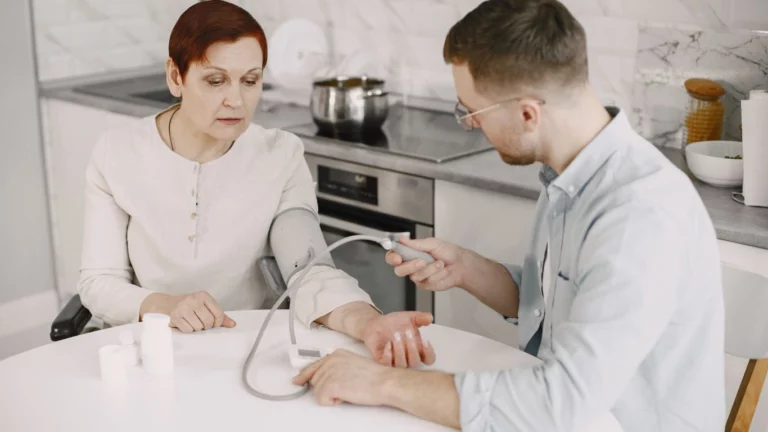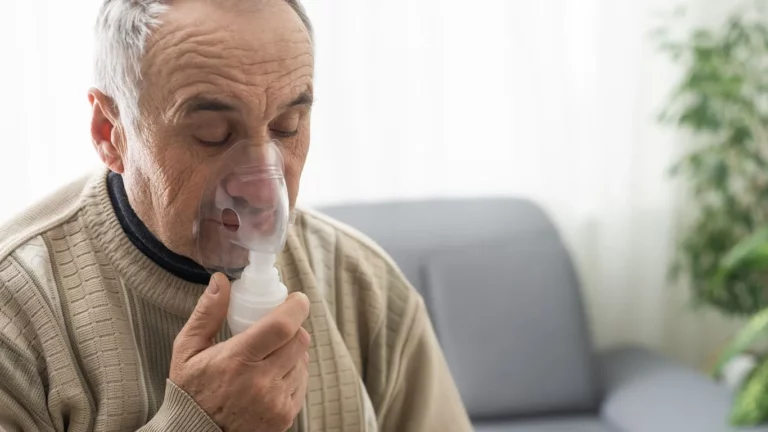How Smoking Affects Acid Reflux: Negative Impact on Your Health
As someone who’s spent a lot of time studying GERD and its treatments, I can tell you that smoking and acid reflux are not a good combination. In fact, smoking can make acid reflux significantly worse, leading to more frequent and severe symptoms. If you’ve ever wondered why smoking seems to trigger that burning sensation in your chest, or why your acid reflux is harder to control after a cigarette, you’re not alone. In this article, I’ll dive deep into how smoking affects acid reflux and share some insights based on my experience working with many patients who have struggled with both GERD and smoking.
How Smoking Impacts Acid Reflux
Smoking isn’t just bad for your lungs; it can wreak havoc on your digestive system, especially if you suffer from acid reflux. There’s a strong connection between smoking and increased acid reflux symptoms, and understanding how smoking affects your body can help you take better control of your GERD.
When you smoke, several things happen in your digestive system that contribute to acid reflux. For one, smoking weakens the lower esophageal sphincter (LES)—that little muscle at the bottom of your esophagus that acts like a valve, keeping stomach acid where it belongs. If the LES isn’t working properly, stomach acid can escape into your esophagus, leading to the painful heartburn and discomfort characteristic of acid reflux.
Additionally, the chemicals in cigarettes can stimulate your stomach to produce more acid, further aggravating the condition. It’s a vicious cycle: smoking weakens the LES, increases acid production, and causes more acid to travel up into your esophagus.
Nicotine’s Role in Acid Reflux
Nicotine, the main addictive substance in cigarettes, plays a key role in how smoking affects acid reflux. Nicotine has been shown to relax the LES, making it easier for stomach acid to escape and flow into the esophagus. This relaxation of the LES is one of the reasons smokers are more likely to experience heartburn.
Interestingly, nicotine doesn’t just relax the LES during smoking; it also affects how your digestive system works even after you’ve finished your cigarette. Studies show that nicotine stays in your system long after you smoke, which can continue to affect the LES and contribute to reflux symptoms. This can make it harder for GERD sufferers to get relief, even if they’ve quit smoking for some time.

The Effect of Smoking on Saliva Production
It might sound strange, but smoking can even affect your saliva production. Normally, saliva helps neutralize stomach acid in the esophagus, but smoking can reduce the amount of saliva your body produces. This means that even if stomach acid does make its way up your esophagus, you don’t have as much saliva to help wash it back down.
Without enough saliva, your body is less equipped to handle acid reflux episodes, leading to more intense discomfort. This is why GERD patients who smoke may have a harder time managing their symptoms compared to those who don’t smoke.
Other Risk Factors: Why Smoking Makes GERD Worse
Aside from weakening the LES and reducing saliva production, smoking introduces other risk factors that contribute to acid reflux. For example, smoking can impair your body’s ability to clear acid from the esophagus, making it more prone to damage. If acid hangs around in your esophagus too long, it can cause inflammation and increase the chances of complications, such as esophageal ulcers or even more severe conditions like esophageal cancer.
Smoking also plays a role in increasing your risk of developing a condition known as hiatal hernia. This condition occurs when part of your stomach bulges up into your chest through an opening in your diaphragm, and it’s known to make acid reflux symptoms worse. There’s no doubt that smoking is a major risk factor for this condition, further complicating things for those with GERD.
The Vicious Cycle of Smoking and GERD
One of the most frustrating aspects of dealing with both smoking and acid reflux is the vicious cycle it creates. The more you smoke, the worse your GERD symptoms become. As your symptoms worsen, you may find yourself relying more on cigarettes to deal with stress, anxiety, or other triggers. This only deepens the cycle, and before you know it, you’re stuck in a situation where smoking and acid reflux feed off each other.

If you’re struggling with both GERD and smoking, I know how difficult it can be to break free from the cycle. But trust me, it is possible. Understanding the impact smoking has on your body and your reflux symptoms is the first step toward finding better ways to manage both. For many people, quitting smoking is one of the most effective things they can do to reduce the frequency and intensity of their acid reflux episodes.
How Smoking Affects Your Long-Term GERD Management
If you have GERD, smoking can make it much harder to manage your condition over the long term. Smoking not only increases the severity of your symptoms but can also make it more difficult for treatments, whether they be medications or lifestyle changes, to work effectively. For example, while medications like proton pump inhibitors (PPIs) can help reduce stomach acid production, smoking can counteract their effects, leading to less effective symptom control.
Even with medications and lifestyle modifications, if smoking remains in the picture, it can significantly diminish the benefits you gain from other treatments. That’s why quitting smoking should be a top priority for anyone who wants to gain better control over their acid reflux.

Tips for Quitting Smoking to Improve GERD
Quitting smoking isn’t easy, but it’s one of the most important steps you can take to improve your overall health and manage your GERD symptoms. Here are a few tips that can help:
- Start slow: Gradually reduce your cigarette intake instead of quitting cold turkey, which can help ease the transition.
- Seek support: Talk to your doctor about smoking cessation programs or support groups. They can provide you with resources and tools to quit.
- Identify triggers: Pay attention to what triggers your smoking habit and try to avoid those situations or find healthier coping mechanisms.
- Consider nicotine replacements: Nicotine gum or patches can help you manage cravings and reduce withdrawal symptoms.
How Smoking Affects GERD Treatment and Medication
If you’ve been diagnosed with GERD, you’ve probably already tried medications to help reduce stomach acid, such as proton pump inhibitors (PPIs) or H2 blockers. While these treatments can be highly effective in managing the symptoms of acid reflux, smoking can make it harder for these medications to work their magic. This is especially frustrating for those who are already struggling with the chronic discomfort of GERD.
One of the main reasons smoking interferes with GERD treatments is that it decreases the effectiveness of medications that aim to reduce stomach acid. If you’ve been taking medications and haven’t noticed much of an improvement, smoking could be playing a role in diminishing their effectiveness. Nicotine and other chemicals in cigarettes can impair the way your digestive system processes and responds to medications, making it harder for them to provide relief.
Smoking and Proton Pump Inhibitors (PPIs)
Proton pump inhibitors (PPIs) are among the most commonly prescribed medications for managing GERD. They work by reducing the amount of acid your stomach produces, helping to alleviate the symptoms of heartburn and regurgitation. However, if you’re a smoker, PPIs may not work as well for you. Studies show that smoking can reduce the ability of PPIs to control acid production, which means that you may need higher doses or a different treatment approach to see results.
In my experience working with patients, I’ve seen cases where individuals who continued to smoke while on PPIs didn’t experience the same level of relief that those who quit smoking did. It’s a tough situation, especially when you’re trying to balance managing GERD symptoms with the addiction to nicotine. But knowing that smoking can undermine your treatment is a great motivator for making lasting changes to your lifestyle.

Other GERD Medications Affected by Smoking
While PPIs are the most well-known GERD medication, there are other medications, like H2 blockers and antacids, that are commonly prescribed for acid reflux relief. Just like PPIs, these medications can also be less effective in smokers. For example, H2 blockers, which work by reducing acid production in the stomach, can be hindered by the chemicals in cigarettes. In addition, antacids like Tums or Maalox might not offer the relief you need if smoking is still in the picture.
It’s important to remember that GERD treatment is often a combination of medication, lifestyle changes, and dietary adjustments. Smoking can make it harder for any of these treatments to work effectively, so quitting is one of the best things you can do to increase your chances of long-term relief.
Smoking and Its Effect on the Esophagus
We’ve talked about how smoking can worsen acid reflux symptoms and interfere with GERD treatments, but the impact on your esophagus is another area of concern. Smoking doesn’t just contribute to acid reflux; it can also cause significant damage to the esophagus over time. This is why long-term smokers with GERD are at a higher risk for complications such as esophageal ulcers, narrowing of the esophagus, and even esophageal cancer.
Here’s why this happens: smoking weakens the body’s natural defense mechanisms against stomach acid. The esophagus is designed to handle small amounts of acid, but excessive exposure can lead to irritation, inflammation, and even permanent damage. Over time, this damage can lead to more severe health conditions that go beyond just discomfort.
Esophageal Ulcers and Smoking
Esophageal ulcers are one of the more serious consequences of prolonged acid reflux. These painful sores form when stomach acid repeatedly irritates the lining of your esophagus. Smoking not only worsens acid reflux, but it also reduces the healing ability of your esophagus. This means that once an ulcer forms, it can take longer to heal, and the risk of further damage increases. Smokers who suffer from GERD are more likely to develop ulcers, and these ulcers can lead to even more severe complications if left untreated.

Increased Risk of Esophageal Cancer
Unfortunately, the damage caused by smoking and acid reflux doesn’t stop at ulcers. If you continue to smoke over the years, you increase your chances of developing a condition called Barrett’s esophagus. Barrett’s esophagus occurs when the cells in the lining of your esophagus begin to change due to repeated exposure to stomach acid. These changes can increase your risk of developing esophageal cancer, a particularly dangerous form of cancer that can be difficult to detect early.
As someone who has worked with patients dealing with GERD, I can tell you that this is one of the most concerning aspects of smoking for those with acid reflux. While not everyone who smokes and has GERD will develop esophageal cancer, the risk is significantly higher compared to those who don’t smoke. This is why it’s so important to take action if you have both GERD and a smoking habit. Quitting smoking is one of the best things you can do to reduce your long-term health risks.
The Importance of Lifestyle Changes Alongside Quitting Smoking
If you’re trying to manage GERD, quitting smoking is just one piece of the puzzle. While it’s an incredibly important step, it’s essential to make other lifestyle changes to fully control your acid reflux symptoms. In my experience, patients who combine smoking cessation with changes to their diet, exercise routine, and sleep habits see the most improvement in their GERD symptoms.
Dietary Changes for GERD
Your diet plays a huge role in managing acid reflux. Certain foods can trigger reflux, such as spicy dishes, citrus fruits, chocolate, and caffeinated beverages. If you’re already dealing with acid reflux and smoking, it’s a good idea to avoid these irritants. Instead, focus on foods that are less likely to aggravate your symptoms, like lean proteins, whole grains, and non-acidic vegetables.
Pairing a healthy diet with smoking cessation can help create a strong foundation for managing GERD symptoms. You’ll feel better overall and reduce the chances of reflux flaring up, making it easier to stick to a healthier lifestyle in the long run.

Exercise and GERD
Exercise is another key factor in managing acid reflux. Regular physical activity can help maintain a healthy weight, improve digestion, and reduce the likelihood of reflux. However, it’s important to be mindful of your exercise routine, as intense physical activity—especially right after eating—can sometimes trigger reflux. If you’re new to exercise, start slowly and aim for moderate activities like walking or swimming.
Adding exercise to your routine, combined with quitting smoking and making dietary changes, can help you gain more control over your GERD symptoms. With the right approach, you’ll be on your way to a healthier, more comfortable life.
The Benefits of Quitting Smoking for GERD Relief
If you’re still on the fence about quitting smoking, let me share what I’ve seen in my work with patients. The benefits of quitting smoking for GERD relief are both immediate and long-term. While quitting isn’t easy, the positive impact it has on your digestive system is definitely worth the effort. I’ve seen firsthand how quitting smoking can dramatically improve GERD symptoms and overall quality of life.
One of the most noticeable changes is the reduction in the frequency and severity of heartburn. Many of my patients who quit smoking report feeling less discomfort, fewer reflux episodes, and an overall improvement in their ability to manage their acid reflux. In some cases, smoking cessation can even reduce the need for medications, as the body starts to function more effectively in controlling stomach acid.
Immediate Benefits
When you quit smoking, your body begins to repair itself right away. Within just 24 hours, the carbon monoxide levels in your blood drop, and your circulation starts to improve. Over the next few days and weeks, the healing process continues as your lungs start to clear out the toxins from smoking, and your digestive system begins to regain balance. For those with GERD, this immediate healing effect can lead to a reduction in acid reflux symptoms. The lower esophageal sphincter (LES) starts functioning better, and there’s less acid production in the stomach.
While these immediate benefits are encouraging, it’s important to keep in mind that your body might still need some time to fully recover from the damage caused by years of smoking. The more you stick with it, the more noticeable the improvements will be in terms of your overall digestive health.

Long-Term Benefits
The long-term benefits of quitting smoking are even more significant. As your body heals over time, you’ll experience fewer episodes of heartburn, and your risk of developing complications like esophageal ulcers or cancer will decrease. For example, the risk of developing Barrett’s esophagus, a precursor to esophageal cancer, is reduced when you quit smoking. Additionally, your risk of developing other GERD-related issues, like hiatal hernias, decreases significantly.
Another long-term benefit that my patients often mention is the improvement in their overall energy levels. Without the constant drain of dealing with GERD symptoms and the toll that smoking takes on your body, many people feel more energetic, less stressed, and better equipped to handle everyday challenges.
How to Stay Smoke-Free and Manage GERD
Now that we’ve established that quitting smoking is one of the best things you can do for your GERD symptoms, let’s talk about how to stay smoke-free. The journey toward quitting smoking isn’t always straightforward, but with the right strategies and support, you can increase your chances of success. Pairing smoking cessation with effective GERD management can make a world of difference in your health and well-being.
Support Systems for Quitting Smoking
If you’re serious about quitting, don’t try to go it alone. Seeking support from professionals and loved ones can make all the difference. There are numerous programs, apps, and resources available to help you quit smoking, whether it’s through nicotine replacement therapy (like patches or gum), counseling, or support groups. Talking to a doctor or healthcare provider who understands your GERD condition can also help you create a personalized quit plan that works best for you.
For many people, the social aspect of quitting smoking is one of the most helpful factors. Whether it’s joining a quit-smoking group or having a friend to talk to, connecting with others who are on the same journey can provide motivation and encouragement when things get tough. Knowing you’re not alone can help you stay focused and on track.
Mindful Lifestyle Changes to Manage GERD
In addition to quitting smoking, you’ll want to make mindful lifestyle changes that support your GERD management. This means paying attention to your diet, stress levels, and daily routines. One of the most effective ways to manage GERD, in my experience, is by identifying specific foods or behaviors that trigger reflux. By avoiding or minimizing these triggers, you can keep your symptoms in check and prevent future flare-ups.
Incorporating regular exercise into your routine is another great way to manage GERD. Exercise helps with weight management, improves digestion, and reduces stress—all of which contribute to better control over acid reflux. However, be mindful of your body after meals; avoid vigorous exercise right after eating, as this can sometimes worsen symptoms.
Another crucial change is modifying your sleeping habits. Sleeping on your left side is often recommended for GERD sufferers, as it can help reduce acid reflux during the night. Raising the head of your bed slightly can also help prevent acid from flowing back into the esophagus while you sleep. These simple changes can make a huge difference in managing your symptoms and improving your quality of life.

References
For more information on GERD and its relationship with smoking, feel free to check out these trusted sources:
Disclaimer
The information provided in this article is for informational purposes only and should not be used as a substitute for professional medical advice. Always consult with your healthcare provider before making any changes to your treatment or lifestyle. The content shared here is based on personal experience and the experiences of patients I’ve worked with over the years. Individual results may vary, and it’s important to seek personalized guidance from a healthcare professional.

Camellia Wulansari is a dedicated Medical Assistant at a local clinic and a passionate health writer at Healthusias.com. With years of hands-on experience in patient care and a deep interest in preventive medicine, she bridges the gap between clinical knowledge and accessible health information. Camellia specializes in writing about digestive health, chronic conditions like GERD and hypertension, respiratory issues, and autoimmune diseases, aiming to empower readers with practical, easy-to-understand insights. When she’s not assisting patients or writing, you’ll find her enjoying quiet mornings with coffee and a medical journal in hand—or jamming to her favorite metal band, Lamb of God.







